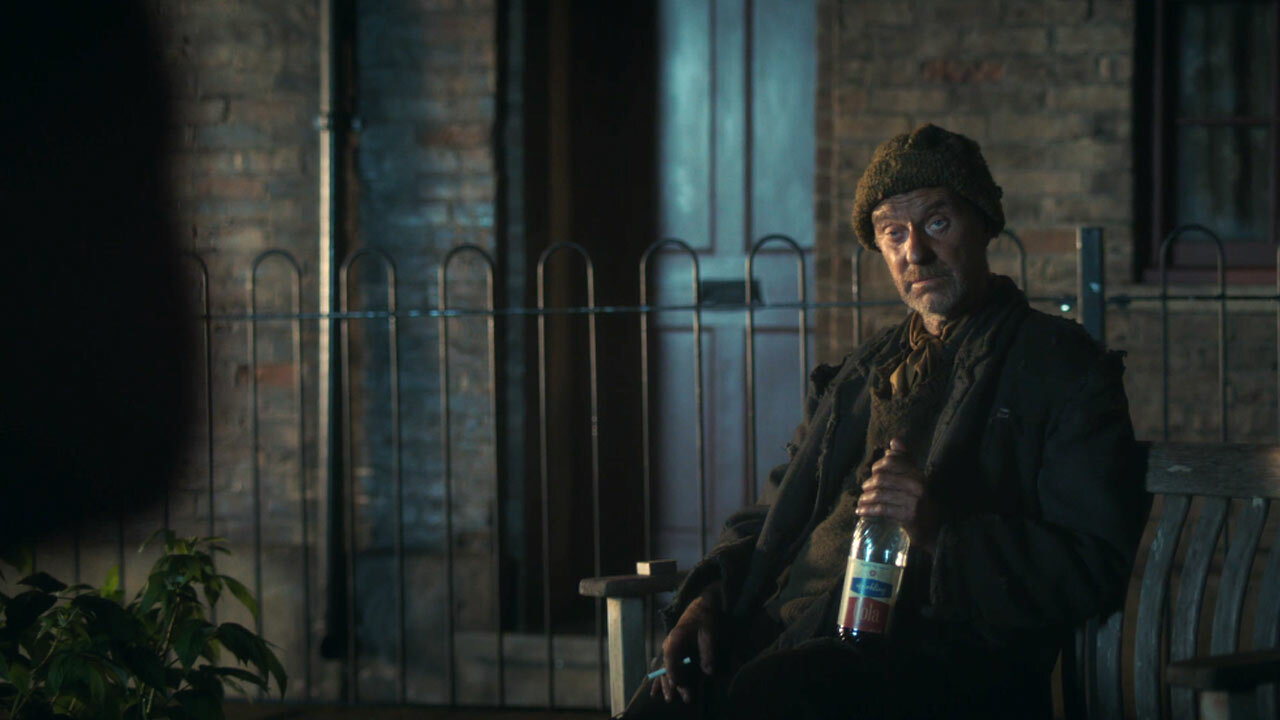I love how the writers at Call the Midwife are able to focus on topics that are outside of the public’s perception of midwifery. This week’s storyline revolved around Bernard, a man who is currently unhoused and living in Poplar (note: this article helps to explain why language has shifted from saying homeless to unhoused or houseless). Bernard is known in the area as a “meths drinker,” and trust me, I had to look up what meths was as well! It’s short for methylated spirits, and it’s essentially pure alcohol. It’s a combination of ethyl alcohol and methyl alcohol, with the methyl alcohol added to discourage people from using it as cheap alcohol to drink. Methylated spirits smell and taste terrible, and are poisonous when ingested, leading to blindness, brain damage, or death.
Because methylated spirits are so cheap, it did become the drink of choice for many poor and unhoused men in the East End in the 1960s. Bernard had a tough life, and although he had no family left in the area, he returned to Poplar when he had nowhere else to go. Nancy’s first impression of Bernard was not unlike the reaction many people might have when coming across a houseless neighbor struggling with addiction. She was fearful, quite judgmental, and focused on his different appearance and his smell. Through a few conversations with Sister Frances, and working alongside her as they cared for a man dying of tuberculosis, Nancy started to see Bernard in a different light.
I love how Nancy’s growth as a midwife, nurse, and young woman has been an integral part of this season’s storyline. Nancy was able to pivot her mindset regarding unhoused people and people with addiction, like Bernard, because she had role models such as Sister Frances to look to for examples. Nancy took the time to educate herself after she was inspired by her colleague. This reminded me a bit of how I try to teach my children about the world around us. It’s normal for children to notice differences, and point them out, much like Colette did. For example, recently my son loudly asked “Why does that man have none hair?” while we waited for my oldest at his karate class. Instead of laughing them off or shushing them, I try to be the example for my children. I answer questions honestly and to the best of my ability, and have conversations ranging from why people look different from one another to respecting people’s pronouns and gender identities.
I also check my own implicit biases often, because we all have them. We have seen houseless folks on the corner holding signs, and my oldest son is old enough to be able to read the signs and ask why they are asking for money or help. Instead of looking away, trying not to make eye contact, and pretending I don’t see them, I can acknowledge them, even if it’s with only a smile. I can only hope that through my actions and my discussions with my kids, I am instilling in them the compassion and understanding that Sister Frances was able to pass on to Nancy.
Nancy was able to move past her initial discomfort with the situation in order to treat Bernard like any of her other patients. Although Bernard’s health problems from drinking methylated spirits were too severe for her to help, she stayed with Bernard through his passing and treated him with dignity and respect. She dressed in his favorite color and brought flowers, the same way she would have if it was a loved one passing. Nancy, like Sister Frances earlier in the episode, stayed with Bernard to be sure he wouldn’t be alone as he died.
I can’t help but feel inspired by watching this week’s episode. It has been a long two years working in health care during the COVID-19 pandemic, and it’s easy to feel burnt out and disengaged. Seeing the compassion, love, and drive of the staff at Nonnatus house might not take away the mental exhaustion of working and parenting full time during a pandemic, but it does inspire me to keep on going. It reminds me that we can make such a difference in the lives of our patients. We certainly cannot fix every problem, but we can advocate for policy changes that will benefit our patients. We can treat all of our patients with dignity and respect. We can pivot our mindset from our initial judgments and biases into a mindset of empathy. Finally, we can impact future generations by raising our children, or being role models for other children in our lives, to be kind and inclusive people.
